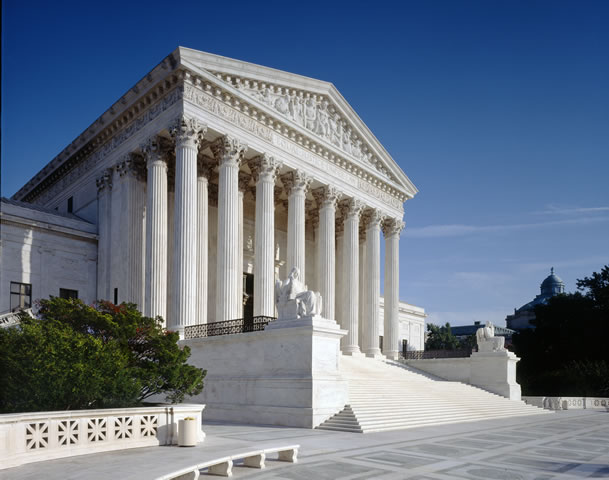The US Supreme Court has begun hearing oral arguments in a pair of cases that could for the first time challenge a key legal protection that has allowed internet companies to flourish since the late 1990s.
The first case was brought by the family of Nohemi Gonzalez, a 23-year-old student at Califoria State University, Long Beach, who was killed in a 2015 Islamic State attack in Paris while studying there.
The case challenges a dismissal by a lower court based on Section 230 of the Communications Decency Act of 1996, which protects internet firms from liability for content posted by their users.
It is the first time the Supreme Court will examine the scope of Section 230.
 Freedom of speech
Freedom of speech
The family claims YouTube’s algorithms unlawfully recommended videos by Islamic State, helping to spread the group’s message and recruit fighters.
The suit was brought under the federal US Anti-Terrorism Act.
Google and other internet firms filed briefs saying any weakening of Section 230 could unleash a flood of litigation against such platforms and challenge freedom of speech.
The second case, Twitter vs Taamneh, was brought by relatives of a victim of an Islamic State attack on an Istanbul nightclub in 2017.
The relatives alleged Twitter, Facebook and Google knowingly aided the terrorist organisation by failing to stop its supporters from using their sites to disseminate content.
‘Diverse perspectives’
The court is to begin hearing arguments in that case on Wednesday.
The US Department of Justice filed a brief warning against an “overly broad reading of Section 230” that it said could “undermine the enforcement of other important federal statutes by both private plaintiffs and federal agencies”.
In a brief supporting Google, Facebook parent Meta argued algorithms are a “critical component” of its anti-terrorism activities and that a broad Supreme Court decision could “encourage websites to remove all but the most benign views, turning a marketplace of diverse perspectives into a platform for orthodox perspectives”.





